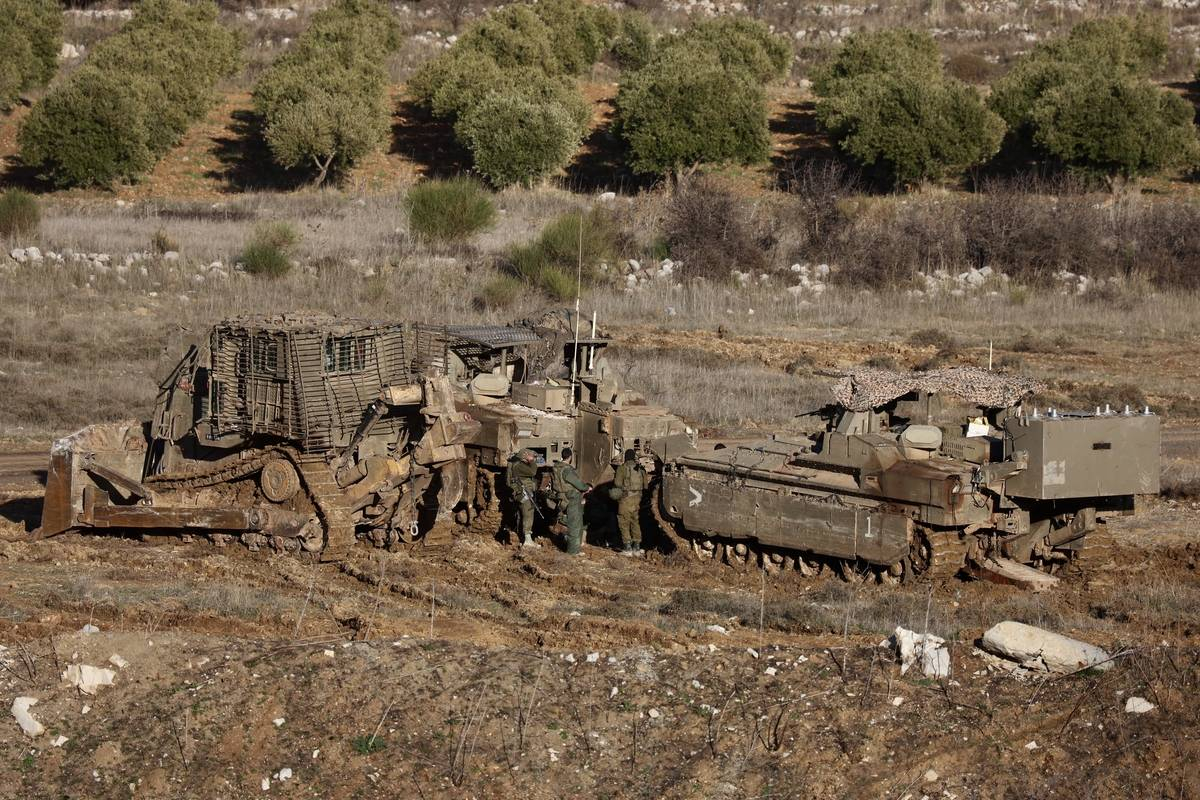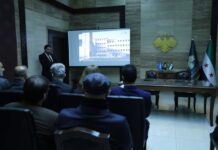
The Israeli army has intensified its presence and operations in southern Syria, asserting control over strategic areas following the fall of the Assad regime in December 2024. Citing “security concerns,” Israeli forces have conducted military incursions, destroyed and seized weapons, and established a sphere of influence extending deep into Syrian territory.
Military Occupation & Strategic Goals
On January 9, the Israeli army announced the destruction of weapons and ammunition seized during operations in southern Syria. Engineering and infantry units, under the “Golan Formation” (474), have conducted extensive inspections, confiscating anti-tank missiles, explosive devices, and other equipment reportedly left behind by the ousted Assad regime’s military.
The Israeli army released videos showing the destruction of these materials, stating that the actions were part of a “forward defense mission” to ensure the security of Israel and the Golan Heights. However, the operation has faced widespread condemnation from local residents and international observers who view it as a continuation of Israel’s illegal occupation and expansionist policies.
Israeli forces have also expanded their reach, seizing areas in Quneitra and the western outskirts of Daraa, including Mount Hermon. These moves, described as “temporary security measures” by Israeli officials, are part of a broader strategy to establish a 15-kilometer control zone and a 60-kilometer intelligence sphere inside Syria.
Impact on Local Communities
The Israeli occupation has disrupted the lives of thousands of Syrians in the region. Protests erupted in Quneitra and Daraa provinces, with demonstrators demanding the withdrawal of Israeli forces. On December 25, civilians were injured when Israeli soldiers opened fire on protesters in the Quneitra countryside. Similar incidents occurred days earlier in the Yarmouk Valley, where Israeli troops reportedly fired on demonstrators.
The occupation has also hindered agricultural and beekeeping activities in areas like Wadi Maariyah. Farmers and beekeepers have been blocked from accessing their lands due to the presence of Israeli checkpoints, leading to significant economic losses. Beekeepers estimate their combined losses at tens of thousands of dollars, as they are unable to maintain their hives or harvest honey.
Local residents have sought intervention from the UN and other international bodies, but little progress has been made. Farmers in the Yarmouk Valley remain unable to cultivate crops such as zucchini and tomatoes, which are crucial to their livelihoods.
International Response & Concerns
Israeli officials, including Prime Minister Benjamin Netanyahu, have defended the military’s actions, citing the need to prevent “potential threats” from emerging in the power vacuum left by the Assad regime. However, critics argue that the occupation violates international law and further destabilizes an already volatile region.
Hebrew-language media reports reveal plans for long-term Israeli control in southern Syria, with officials expressing skepticism about the intentions of Syria’s new administration. A senior Israeli official warned that the new Syrian leadership could “turn against us in the future,” justifying the continued military presence.
The occupation has also sparked fears of further militarization and sectarian division. Observers warn that Israel’s actions could fuel resentment among local communities and complicate efforts to rebuild Syria after years of conflict.
The Path Ahead
As Israel consolidates its control over parts of southern Syria, questions remain about the long-term implications of its actions. While Israeli officials insist their measures are temporary, the lack of a clear withdrawal timeline has fueled speculation about broader territorial ambitions.
Local resistance and international pressure are likely to intensify in the coming months, as Syrians and the global community grapple with the ramifications of Israel’s ongoing occupation and expansion in the region.








